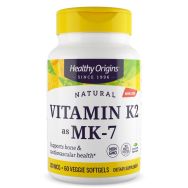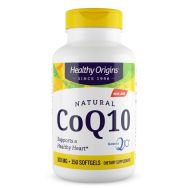Looking after your cardiovascular health: Tips, supplements, and a Mediterranean diet

Why is cardiovascular health so important?
Maintaining a healthy cardiovascular system and heart is essential to living well and enjoying every year as you age. Blood performs many vital roles, and we need to ensure the blood’s transport system operates smoothly and reliability. Our blood vessels need to be maintained and the pump, the heart, needs to be fit for life too.
Unfortunately, may of us are living with heart and circulatory disease. Our diets, lack of physical activity and excessive consumption of alcohol and smoking can all increase our risk of cardiovascular disease. Resulting in high blood pressure, blood sugar, blood lipids and weight gain leading to obesity.
How to reduce your risk of cardiovascular disease
There are plenty of ways we can help reduce our risk of cardiovascular disease and promote heart health. The most mentioned by many in public health include:
- Stop smoking
- Get moving (regular, daily physical activity)
- Maintain a healthy body weight
- Get good quality sleep
- Manage our stress levels
- Get regular health check-ups (blood pressure, cholesterol, and blood sugar)
- Eat a diet bursting with nutrient dense foods focusing on vegetables and fruits.1
Diet recommendations
A healthy diet is recommended for preventing cardiovascular disease. This looks like a Mediterranean style diet which is plentiful in plant-based, fibre rich foods such as vegetables, pulses, nuts, whole grains, and fruit. Your diet should also include portions of fish or poultry with a limited amount of processed meats, sugar, and salt.

Supplements to consider
Alongside food, key nutrient supplements can support our cardiovascular system (prevention) or help with existing cardiovascular and heart health problems.
Garlic
Based on current research, garlic can significantly reduce the risk of atherosclerosis, hypertension, diabetes, hyperlipidemia (high blood fats), myocardial infarction (heart attacks), and ischemic stroke. Current recommendations suggest supplementing with 600 to 1,200mg a day, usually divided into multiple doses.
Carnitine
L-Carnitine is found in all our cells. It helps with energy production in our cells and acts as an antioxidant (scavenger of free radicals) and anti-inflammatory. When our heart experiences low blood conditions (ischaemia), we also have lower carnitine levels. Research has shown that if we supplement with carnitine we can recharge the lower levels of heart carnitine.4 For prevention, supplement recommendations are usually in the range of 500 to 2000mg per day. Those with known cardiovascular issues would supplement with more, though would need specialist advice to do so.
Coenzyme Q10 (CoQ10)
CoQ10 can be found in food (about 5 mg/day for a Mediterranean diet) from foods including fatty fish, soya, nuts and spinach. However, levels from food alone are low and won’t help maintain optimal health. Low levels of CoQ10 are associated with many degenerative states and several diseases including cardiovascular and cerebrovascular diseases, e.g., heart failure, myocardial infarction, migraine, chronic kidney disease, and hypertension. Taken once daily with food, typical doses are between 90 and 200 mg.
Fish Oil (Omega 3 Fatty Acids)
Fish oil is the most consumed non-vitamin, nonmineral supplement. There are many reported health benefits including having a significant protective effect against coronary heart disease incidence when compared to no fish oil intervention. We should consume both EPA and DHA omega 3 fatty acids, looking at 300 to 600 mg of a day.
Grape seed
Grapevine seeds have high antioxidant potential, with high concentrations of important polyphenolic substances. Research shows that grape seed extract provides benefits against many diseases including inflammation, cardiovascular disease, hypertension, diabetes, cancer, peptic ulcer, microbial infections, etc. For supporting our heart health, we should supplement with 150 to 300mg daily.
Resveratrol
Resveratrol is found in certain foods including peanuts, grapes, and berries. Taking a supplement of this plant compound can act like an antioxidant and benefit our hearts. Studies show resveratrol causes numerous positive effects including decreases in inflammation, increased endothelial function, and a reduction in oxidative stress. Recommended doses range from 100 to 3000mg per day, taken with or without food.
Taurine
Taurine is a sulphur-containing amino acid found in meat and fish. Taurine has many physiological functions within our bodies. These include mitochondrial function, producing energy, and modulating oxidative stress. All of which are important for helping support our cardiovascular systema and health. Intakes of 500 to 2000 mg per day have shown effectiveness.
Vitamin K
Vitamin K is fat soluble and supports blood clotting and calcium regulation. It can also influence our cardiovascular health through reducing systemic inflammation, maintaining haemostasis, and inhibiting arterial calcification. There are two forms common in supplement products, Vitamin K2 MK4 and K2 MK7. MK4 has been effective at doses of 1500mcg and MK7 at 100 to 360 mcg.
In summary
We all need to ensure that we are following the lifestyle recommendations aligned to preventing and reversing cardiovascular disease. These can be challenging when we have busy lives and many commitments, all competing for our time. It’s difficult to make all the suggested changes overnight, however we can make small simple changes repeatedly and move our habits in the right direction.
Eating a balanced, whole food diet can be really beneficial. Including appropriate key nutrients, as we have outlined here, can help all of us ensure “with a healthy heart, the beat goes on!”
If you have a specific interest or would like to see a particular product or nutrient reviewed, please email info@bigvits.co.uk.















